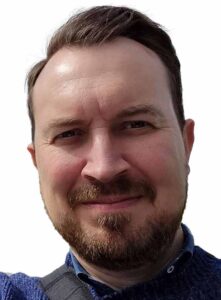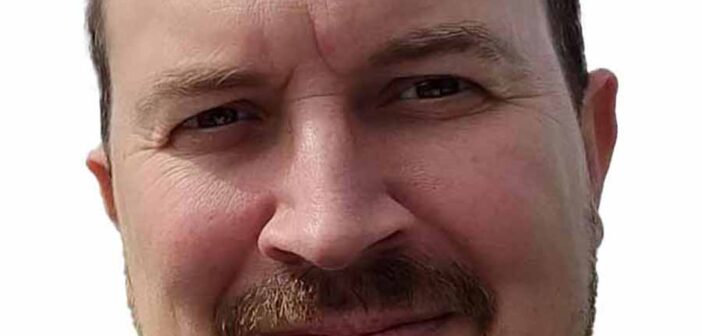
Honoured at the Galway mayor’s awards 2025, Tuatha is a voluntary organisation dedicated to promoting Ireland’s rich archaeological, historical, and cultural heritage through sustainable tourism and public engagement.
Founded by Neil Jackman, an experienced archaeologist, travel writer, and advocate for public archaeology, Tuatha aims to connect people—both locals and tourists—with Ireland’s story-filled landscapes and lesser-known heritage sites.
By prioritising sustainable tourism, expert-led education, and community engagement, Tuatha ensures that Ireland’s monuments and landscapes are valued and preserved. Neil’s story as an archaeologist, author, and public heritage advocate is inseparable from Tuatha’s mission.
His decades of exploration, frustration with mainstream tourism, and commitment to accessibility culminated in a platform that invites everyone to discover Ireland’s hidden stories, fostering a global community united by a love for its past.
The organisation’s mission is to foster appreciation and understanding of Ireland’s monuments and landscapes, ensuring their long-term preservation by encouraging meaningful connections with these places. The name “Tuatha,” derived from the Irish word “tuath” (meaning “people” or “community” and also linked to the countryside), reflects its focus on building a global community passionate about Ireland’s heritage.
Tuatha operates as a platform offering reliable, expert-curated content, including guidebooks, articles, itineraries, online talks, and exclusive tours. Unlike mainstream tourism, which often focuses on well-known sites like the Rock of Cashel or Blarney Castle, Tuatha highlights hidden gems and encourages sustainable exploration to alleviate pressure on over-visited monuments. The organisation also provides educational resources, such as webinars with leading experts and a beginner’s course in Irish archaeology, making heritage accessible to all, regardless of prior knowledge.Tuatha:
- encourages visitors to explore off-the-beaten-path sites, reducing overcrowding at major attractions and fostering appreciation for Ireland’s diverse landscapes, from Neolithic tombs to medieval castles. Its content emphasizes the stories behind these places to deepen visitors’ connections.
- hosts monthly “Tuatha Talks,” live webinars featuring experts like Dr. Gillian Kenny on Gráinne Mhaol or Dr. Patrick Gleeson on Ireland’s royal sites. Members can access recordings of these talks and join exclusive in-person tours, such as explorations of the Hellfire Club site in Dublin, where Neil Jackman shared insights from his excavations.
- offers subscription-based memberships (30-day or annual passes) that provide access to premium content, including detailed site guides, itineraries, and event archives. This model supports the organisation’s voluntary efforts and funds community engagement initiatives.
- collaborates with local communities and national bodies to promote heritage preservation. Its work builds on Neil Jackman’s prior initiatives, such as the “KnowYour5k” project and the Adopt a Monument Scheme, which empower communities to engage with local heritage.
Neil Jackman’s Story and Role in Founding Tuatha
Neil Jackman, the founder and director of Tuatha, is a prominent figure in Irish archaeology with over 20 years of experience in the heritage sector. His passion for public archaeology and sustainable tourism forms the backbone of Tuatha’s mission. Below is an integrated account of his journey and how it shaped Tuatha:
A member of the Institute of Archaeologists of Ireland and the Royal Society of Antiquaries of Ireland, Neil has extensive excavation experience, particularly in the Neolithic and Early Medieval periods. Notable projects include uncovering an early medieval horizontal watermill at Kilbegly, County Roscommon, and leading the Hellfire Club Archaeological Project on Montpelier Hill, Dublin, which explored a Neolithic passage tomb. These experiences deepened his understanding of Ireland’s diverse heritage and its potential to captivate the public.
Neil’s primary motivation has always been to make archaeology accessible to the general public. Through his work with Abarta Heritage, where he serves as a director, he developed initiatives like the Adopt a Monument Scheme and “KnowYour5k” in collaboration with the Heritage Council and the National Museum of Ireland. These projects empowered communities to take ownership of their local heritage, a principle that carried over to Tuatha.
While researching for his acclaimed guidebooks on Ireland’s Ancient East and the Wild Atlantic Way, Neil identified a gap in trustworthy, accessible resources for the public. He noticed that many visitors rushed between major sites, missing hidden treasures due to a lack of reliable information. This realisation inspired him to create Tuatha as a platform to guide people toward meaningful, sustainable exploration.
Neil founded Tuatha to share his passion for Ireland’s landscapes and monuments, drawing on his decades of exploration. He articulated this vision: “I’m so fortunate that my work over the past two decades has allowed me to explore so much of the island of Ireland. This has deepened my understanding of the rich variety of landscapes and monuments, and helped me to enjoy a more meaningful connection to Ireland. In creating Tuatha, we’ve built on all of our previous work and experience, to create something that is designed to help you to create your own connections with Ireland’s story-filled landscapes and places.”
As a sustainable tourism expert, Neil observed that over-reliance on major monuments led to neglect of lesser-known sites, risking their deterioration. Tuatha’s approach aligns with Freeman Tilden’s philosophy: “Through interpretation, understanding; through understanding, appreciation; through appreciation, protection.” By fostering love for Ireland’s heritage, Tuatha aims to ensure its preservation.
As director, Neil oversees Tuatha’s content creation, curating site guides and leading tours, such as those at the Hellfire Club, where he shares firsthand excavation stories. He also hosts the Amplify Archaeology Podcast, further amplifying his commitment to public engagement, which informs Tuatha’s educational offerings.
Impact
Tuatha’s philosophy, rooted in Neil’s vision, emphasizes that heritage belongs to everyone. The organisation believes that fostering appreciation for sites ensures their protection, as neglected monuments are vulnerable to decay. By providing expert-led content and community-focused initiatives, Tuatha creates a “community of people from all over the world who share an abiding passion and love for discovering the landscapes and stories of Ireland.”
Neil’s personal journey—from excavating ancient sites to writing guidebooks and engaging communities—directly informs Tuatha’s structure and goals. His frustration with unreliable online information and the lack of focus on hidden heritage sites drove him to create a trusted resource. Tuatha’s membership model and events, such as webinars on topics like medieval Castleroche or the folklore of the Hellfire Club, reflect his commitment to making archaeology engaging and inclusive.
Challenges
Tuatha faces challenges common to voluntary organisations, such as securing sustainable funding and competing with free, less reliable online resources like Wikipedia. However, its subscription model and partnerships with national bodies and local authorities provide financial and operational stability. Neil addresses concerns about accessibility by ensuring Tuatha’s content is beginner-friendly and relevant to both tourists and locals, with flexible membership options and easy cancellation policies.
Tuatha plans to expand its course offerings, tours, and community engagement initiatives, building on Neil’s legacy of public archaeology. The organisation’s focus on sustainable tourism aligns with growing global interest in responsible travel, positioning it to attract a broader audience passionate about Ireland’s heritage.




